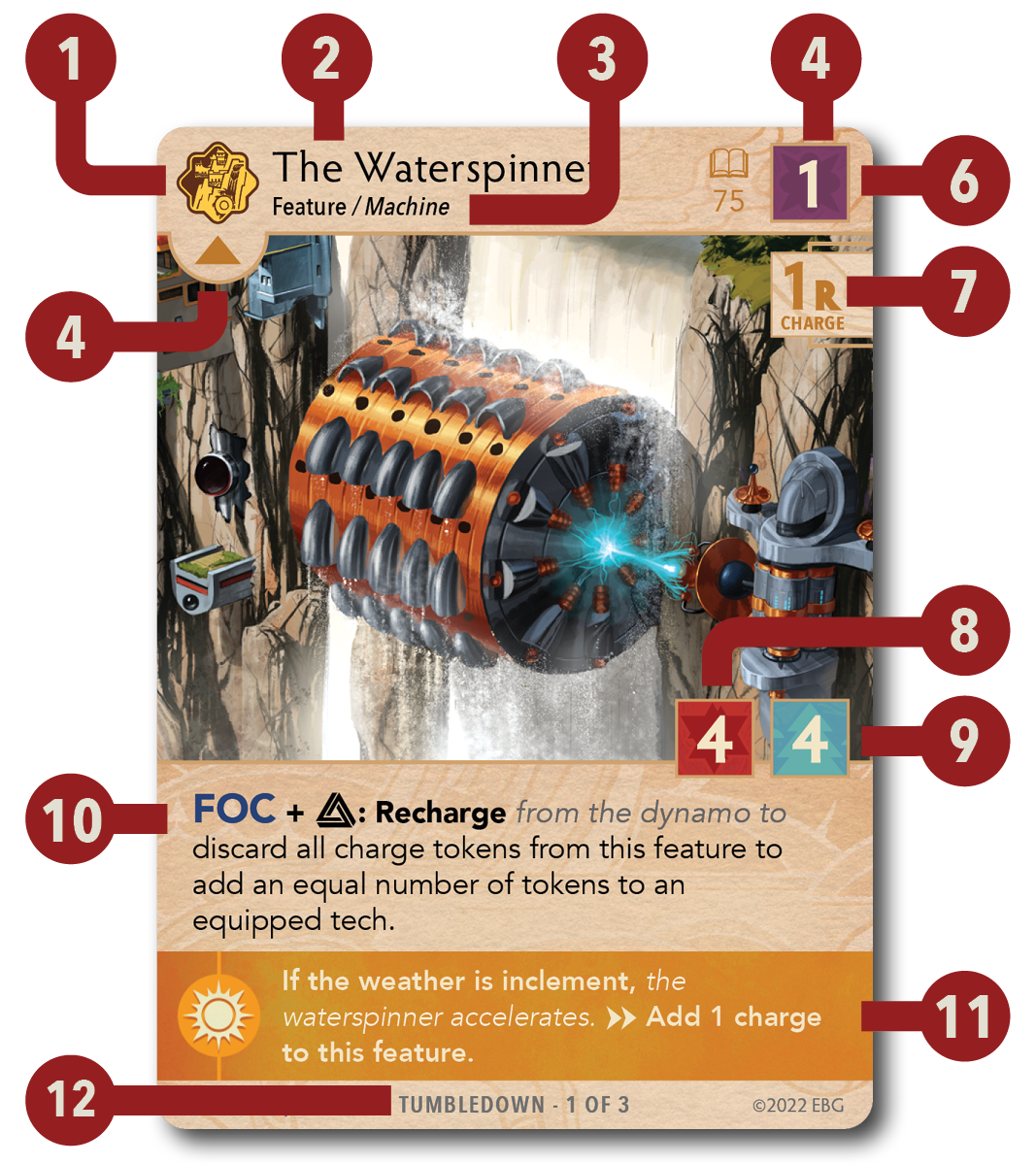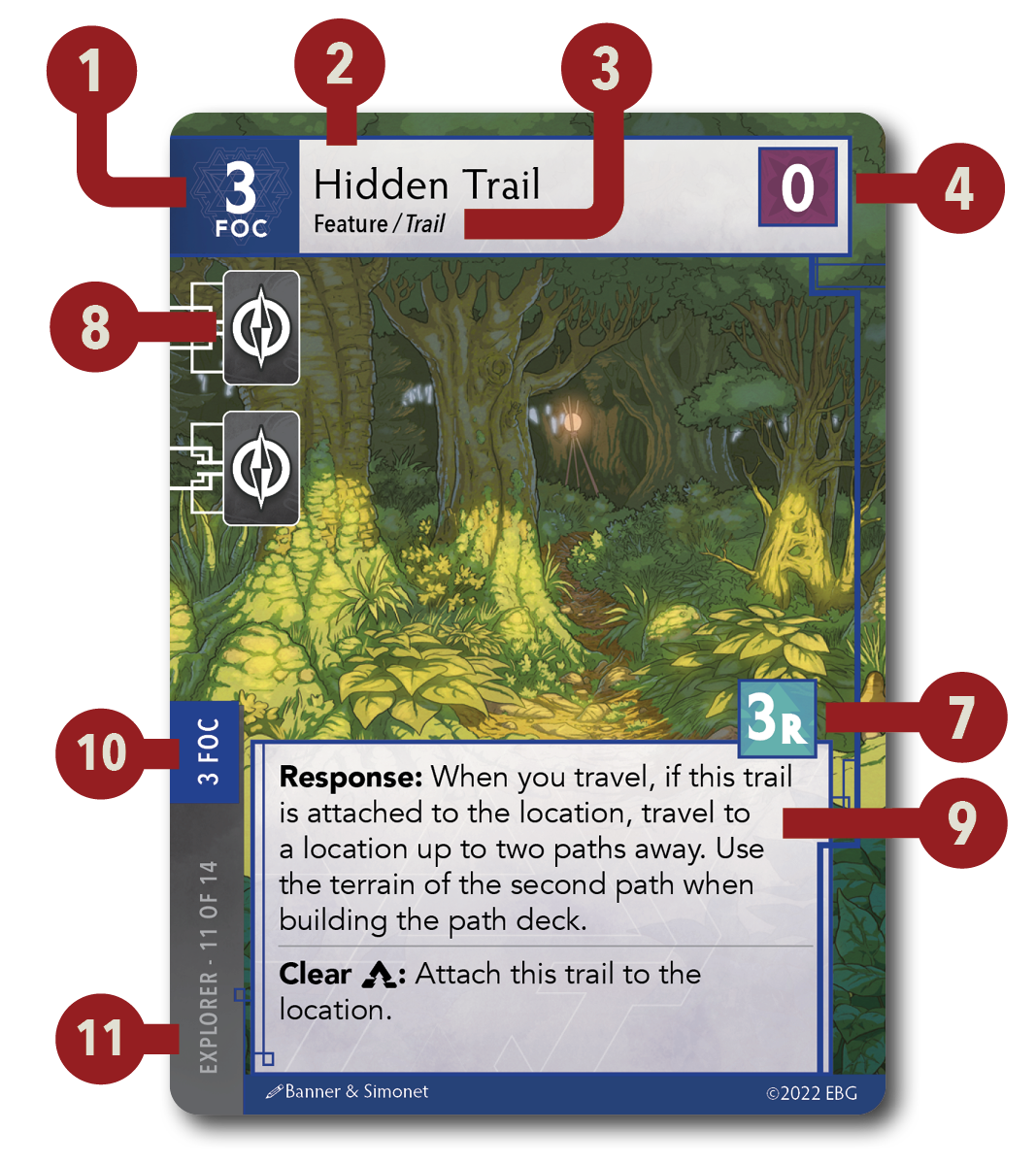Features
Cards that represent structures, terrain, and other inanimate parts of the environment. These are usually path cards, though may also be Ranger cards.
Path Features

- Set Reminder: An icon showing which set the card belongs to to help with quickly identifying the set while in storage.
- Title: The name of the card.
- Card Type and Traits: Flavorful attributes that may be referenced by card abilities.
- Area Indicator: Indicates whether the card enters play, within reach, or along the way .
- Campaign Guide Entry: Indicates an entry in the campaign guide that should be read aloud when the card enters play.
- Presence: The card’s prominence in the environment. Determines the amount of fatigue it deals and scales other effects.
- Tokens: Shows the name of a special token type used for this card and the number of those tokens placed on it when it enters play. Use general tokens to track these.
- Harm Threshold: A measure of the card’s well-being. When this card has an equal or greater number of harm tokens, it clears .
- Progress Threshold: A measure of the Ranger’s progress in overcoming or connecting with the card. When this card has an equal or greater number of progress tokens, it clears .
- Abilities and Tests: The main abilities of that card. This can include tests the Rangers can perform, special rules for the card, or effects that resolve when the card clears .
- Challenge Effects: Effects that resolve at the end of tests based on which of the three challenge icons is shown on the challenge card .
- Set Information: The name of the card’s set and the card’s number in that set.
Ranger Features

- Energy Cost: The number of energy tokens that need to be spent to play the card.
- Title: The name of the card.
- Card Type and Traits: Flavorful attributes that may be referenced by card abilities.
- Presence: The card’s prominence in the environment.
- Tokens: Shows the name of a special token type used for this card and the number of those tokens placed on it when it enters play. Use general tokens to track these.
- Harm Threshold: A measure of the card’s well-being. When this card has an equal or greater number of harm tokens, it clears. This does not appear on every feature.
- Progress Threshold: A measure of the Ranger’s progress in overcoming or connecting with the card. When this card has an equal or greater number of progress tokens, it clears .
- Approach Icons : Icons that can be committed to tests by discarding the card. The card adds one effort for each approach icon matching the one shown on the test.
- Abilities and Tests: The main abilities of that card. This can include tests the Rangers can perform, special rules for the card, or effects that resolve when the card clears .
- Aspect Requirement: You must have this value or higher in the shown aspect to include this card in your deck.
- Set Information: The name of the card’s set and the card’s number in that set.
When you play a Ranger feature, place it within reach of you and treat it like a path card for as long as it remains in play.